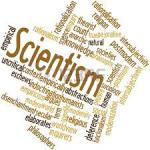I’m becoming convinced that many disputes in the philosophy of science are merely manufactured, arising from people interpreting words to mean different things. A good example is the concept of “reductionism”, where the meaning intended by those defending the concept usually differs markedly from that critiqued by those who oppose it.
A similar situation arises with the terms “top down” versus “bottom up” causation, where neither concept is well defined and thus, I will argue, both terms are unhelpful. (For examples of papers using these terms, see the 2012 article “Top-down causation and emergence: some comments on mechanisms”, by George Ellis, and the 2021 article “Making sense of top-down causation: Universality and functional equivalence in physics and biology”, by Sara Green and Robert Batterman.)
The term “bottom-up” causation tends to be used when the low-level properties of particles are salient in explaining why something occurred, while the term “top-down” causation is used when the more-salient aspect of a system is the complex, large-scale pattern. But there is no clear distinction between the two, and attempts to propose one usually produce straw-man accounts that no-one holds to. Continue reading

 “I am a passionate scientist who is passionate about science, but I also think scientism is a huge mistake”, writes
“I am a passionate scientist who is passionate about science, but I also think scientism is a huge mistake”, writes 
